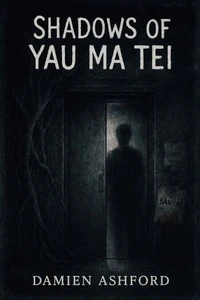They woke on a beach with sand in their mouths and a pulsing black shard against their chests, unable to remember how they arrived. The trials on the island were at once ancient and hypermodern: carved sigils and circuitry braided into logic loops; sensors and tokens that converted every choice into data; cooperation and betrayal fed into machine learning as training examples. The shard was both talisman and key-able to read the island's markings, indicate safe routes, and even trade away pieces of its holder's memory to purchase passage or information.
When the survivors escaped the sand and carried proof back to the mainland, they discovered the loss didn't stop at the shore. A system was waiting-companies and brokers who cut, catalogued, and sold memory like inventory; legal frameworks and public-relations campaigns designed to sanitize and monetize pain; surveillance architectures that turned consent into a contract and grief into a commodity.
Exposing that network meant going up against lawyers, auditors, and supply chains as ruthless and methodical as any machine. This is a novel at the intersection of social science fiction and technological thriller: a story about ownership of the self, the economics of remembrance, and the moral calculus of evidence. It follows a ragged band of people who must learn to trust one another even as their pasts are parceled out and traded.
They mount legal fights, launch hacks, and trace provenance through shadow markets, all while wrestling with the personal cost of reclaiming what was taken. Fans of speculative, idea-driven fiction and readers of techno-thrillers will find here a tense, emotionally charged exploration of memory, consent, and corporate power-an urgent, intimate tale about what we surrender when memory becomes merchandise.
They woke on a beach with sand in their mouths and a pulsing black shard against their chests, unable to remember how they arrived. The trials on the island were at once ancient and hypermodern: carved sigils and circuitry braided into logic loops; sensors and tokens that converted every choice into data; cooperation and betrayal fed into machine learning as training examples. The shard was both talisman and key-able to read the island's markings, indicate safe routes, and even trade away pieces of its holder's memory to purchase passage or information.
When the survivors escaped the sand and carried proof back to the mainland, they discovered the loss didn't stop at the shore. A system was waiting-companies and brokers who cut, catalogued, and sold memory like inventory; legal frameworks and public-relations campaigns designed to sanitize and monetize pain; surveillance architectures that turned consent into a contract and grief into a commodity.
Exposing that network meant going up against lawyers, auditors, and supply chains as ruthless and methodical as any machine. This is a novel at the intersection of social science fiction and technological thriller: a story about ownership of the self, the economics of remembrance, and the moral calculus of evidence. It follows a ragged band of people who must learn to trust one another even as their pasts are parceled out and traded.
They mount legal fights, launch hacks, and trace provenance through shadow markets, all while wrestling with the personal cost of reclaiming what was taken. Fans of speculative, idea-driven fiction and readers of techno-thrillers will find here a tense, emotionally charged exploration of memory, consent, and corporate power-an urgent, intimate tale about what we surrender when memory becomes merchandise.

 , qui est-ce ?
, qui est-ce ?